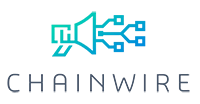Smart contracts are now coming to the leading cryptocurrency Bitcoin’s blockchain. And the first operational sharded blockchain, Alephium is making it happen.
This permissionless decentralized platform allows everyone to contribute to its network while its unique sharding architecture BlockFlow enables implementing Alephium much quicker than other projects.
Compared to other sharding projects, Alephium’s BlockFlow has the same minimal network assumptions as Bitcoin.
Just two months ago, Alephium had closed a $3.6 million pre-sale round and now it has launched its mainnet that will bring Ethereum-inspired smart contracts, scalability, and improved energy efficiency to Bitcoin’s core technology.
“After over 3 years of development under the radar, we are proud to announce the launch of the Alephium Mainnet,” said Cheng Wang, Core Developer of Alephium. “It’s made to support powerful, scalable yet user-friendly decentralized applications and protocols. We welcome the community of developers and miners to join us in improving the ecosystem one project at a time.”
Built on sound innovations, Alpephium is tested on both Bitcoin and Ethereum to deliver a secure, scalable, and open financial platform.
New programming paradigm for DApps
The Alephium blockchain is powered by BlockFlow, which is based on stateful UTXO transactions. Its native single-step cross-shard transactions ensure that the blockchain is as user-friendly as a single chain blockchain while spreading the transaction load.
This blockchain uses the “Proof of Less Work” consensus algorithm, which is a combination of physical work and token economics. It ensures a reduced energy footprint compared to standard PoW protocols.
But even more important is the fact that Alephium’s stateful UTXO model combines the advantages of the UTXO model and the account model. At the same time, it allows for multiple participants and calls in a single smart contract transaction, enabling trustless P2P smart contracts.
Through this novel virtual machine, Alephium offers a whole new programming paradigm for decentralized applications and resolves many of the critical issues of the current dApps platforms, which is providing higher performance while protecting from security attacks.
To solve the single-shard takeover attack, BlockFlow exploits a DAG data structure as a result of which mining works from all shards are accumulated into every new block. If an attacker wants to reorg a block in one shard, then he would be required to attack the blocks on the other shards as well that depend on this block for the attack. And that’s why Alephium is only vulnerable to 51% attacks.
“DApps can now benefit from the security offered by the stateful UTXO model without sacrificing the power and expressiveness of smart contracts,” said







